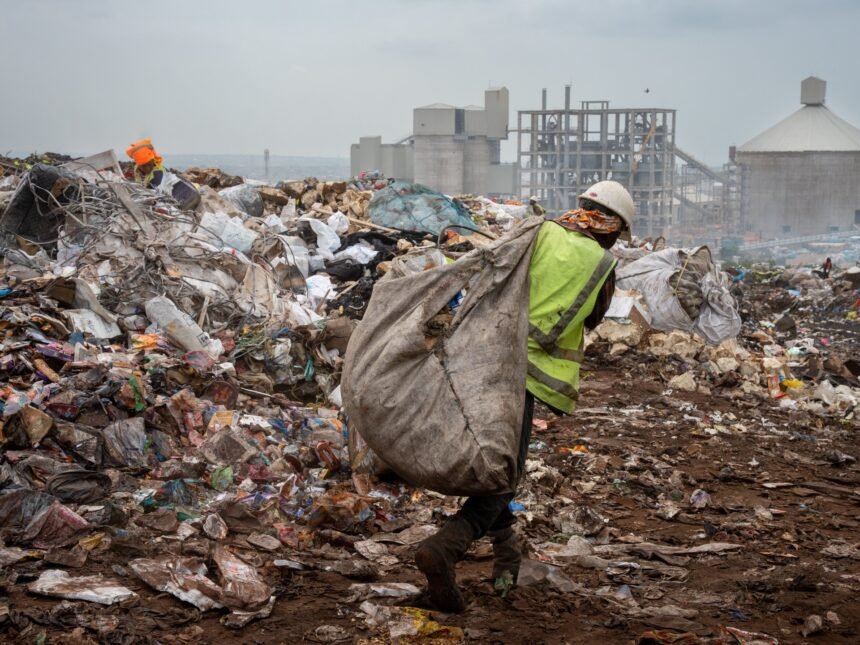‘It is vital work’
Again on the waste yard, enterprise has died down for the day.
Bamfo and her youngest youngsters, Nkunim, 10, and Josephine, 6, are emptying the previous few bottles. She might be in mattress by 8pm, rising at midnight for her Bible research earlier than beginning work once more at daybreak.
Bamfo by no means thought she would develop into a waste picker.
She was 19 when she lastly gained her college certificates, and by promoting oranges, she scraped collectively sufficient cash for a secretarial course. However she couldn’t afford a typewriter.
Whereas the opposite women tapped away at their machines, she drew the keyboard on her train e-book and practiced on that, urgent her fingers into the paper.
Quickly, the cash ran out. As an alternative of the workplace job she dreamed of, she discovered work breaking stones on a constructing website.
“At that second, I see myself – I’m a giant loser, and there’s nothing,” says Bamfo, leaning ahead on her workplace chair to maintain a look ahead to any ultimate supply tricycles. “I see the world is towards me.”
Then one morning she woke to search out the constructing website had disappeared in a single day, changed by a dump: Truckloads of water sachets, drinks bottles and nylon wigs.
Her 5 youngsters lay sleeping. Her husband, as regular, had not come dwelling. To purchase cassava to make banku – dumpling stew – she wanted cash urgently.
A pal had advised her that factories within the metropolis would purchase plastic waste for a number of cedis a kilogramme. It was one of many lowliest jobs there have been, involving not solely backbreaking labour however stigma and disgrace.

“In case you are a girl doing this waste selecting, individuals suppose you haven’t any household to look after you,” she says. “They suppose you’re dangerous. They suppose you’re a witch.”
She got here dwelling in the future to search out her husband had deserted her. However not earlier than he had known as her father to inform him his daughter had develop into a “vulture”.
Estrangement from her father solely compounded the disgrace. To flee her neighbours’ taunts, Bamfo moved along with her youngsters to the opposite facet of the town.
There, she took over her small yard, shopping for waste from pickers and promoting it on to factories and recycling vegetation. Little by little, she constructed a wood home. Ultimately, she plucked up the braveness to cellphone her father.
“I mentioned, ‘Come and see the work I do. See that it isn’t one thing to really feel dangerous about.’”
When he noticed the yard and the tricycle groups that had develop into Bamfo’s enterprise, Nkosoo Waste Administration (“nkosoo” is Twi for “progress”), he couldn’t assist however be impressed.
“You aren’t a girl, you’re a man,” she recollects him telling her as soon as, half admiring and half accusing. “The guts that you’ve got – even your brother doesn’t have that coronary heart.”
Now she hopes to cross on a few of her resilience. King, her supervisor on the yard, slept on a close-by dumpsite as a small baby and says Bamfo and her waste enterprise saved him. “I can’t say a nasty factor about her. She is my mom.”
As evening settles on Accra, the polluting plastic tide has crept somewhat larger. However Bamfo has, she says, discovered dignity within the battle to maintain it at bay.
“It is vital work we do,” she says. “Typically I really feel very unhappy and dangerous about not getting the schooling I wished. However we clear the town. I consider that.”
This story was produced in partnership with SourceMaterial
